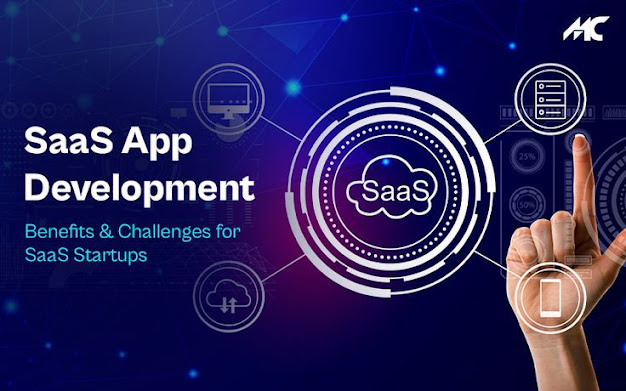How SaaS Tools Are Transforming Game Development in 2025
The gaming industry advances rapidly due to major developments in Software as a Service (SaaS). The game development process receives a transformative boost because SaaS tools make the whole process more accessible and also more efficient and cost-effective. The gaming industry transformation is powered by Software as a Service (SaaS) because it allows developers to build Android games and 3D titles as well as gambling games. The following post examines the 2025 revolution in game industry development through an investigation of vital factors including game engines alongside cloud processing and groupwork applications and artificial intelligence solutions.
1. The concept of SaaS applies to the field of Game Development as a service system.
Developers access cloud-based Software as a Service (SaaS) applications through the internet to deliver solutions without on-site software deployments. Game developers benefit from this model by getting instant access to tools and resources, which enables their teams to maintain remote work and grow easily while decreasing project expenses.
2. The Influence of SaaS Solutions on Game Development Applications
a) Cloud-Based Game Engines for Faster Development
Developers can benefit from SaaS-based solutions offered by Unity and Unreal Engine that enable remote game project development anywhere. The necessity for Android game development and iOS game development requires frequent updates, which benefit from this solution. The essential features which Cloud-based game engines present are:
• Seamless collaboration between team members
• Instant access to the latest development tools
• Automatic updates and bug fixes
• Easy integration with third-party APIs
b) Enhanced Scalability and Performance with Cloud Computing
Developers of video games use SaaS-based cloud services from AWS and Google Cloud as well as Azure to boost gaming performance. Cloud computing enables:
• High-performance rendering for 3D game development
• Efficient storage solutions for large game files
Video game developers can use SaaS-based cloud infrastructure to provide continuous multiplayer hosting services for gambling games as well as additional game genres.
The system provides continuous updates together with patches that operate without service disruptions.
c) AI-Powered Game Development
ovation in game development is possible through AI-powered SaaS tools which automate different aspects of the development process. AI plays multiple decisive roles in system development across NPC behavioral patterns and environment adjustments during real-time operations.
• Procedural content generation for large-scale worlds
• AI-powered testing and debugging
The personalization features of gambling games adapt through the behavioral patterns of the user
• Real-time physics and animation enhancements for augmented reality (AR) games
d) Augmented Reality (AR) and Virtual Reality (VR) Integration
The rise of popularity among augmented reality and virtual reality methods coincides with software-as-a-service tools simplifying developer implementation of AR/VR elements into their games. The cloud-based SDKs of ARKit by Apple and ARCore by Google provide developers with tools to integrate AR features conveniently into both games made for iOS and Android platforms.
Game developers who use SaaS tools for AR can:
Users can produce interactive gaming experiences through SaaS tools which work without extensive hardware devices.
The use of cloud-based AR libraries enables developers to cut down their development period.
Real-time object tracking becomes possible in combination with the ability to interact with them.
e) Automation and Efficiency for Faster Releases
SaaS-based automation tools provide producers in the gaming industry with the ability to optimize their production process workflows. The combination of automated testing with cloud-based CI/CD pipelines along with AI-driven debugging tools decreases manual work, thus producing these results:
• Faster bug detection and fixes
• Efficient performance optimization for 3D game development
The deployment process for Android and iOS gaming platforms becomes faster through these services.
Real-time analytics improves gameplay experiences for gamblers by enhancing gambling experiences in their games.
3. Benefits of SaaS in Game Development
a) Cost Reduction
Through SaaS tools, game development studios manage to reduce infrastructure spending by removing the need to purchase expensive hardware, together with software licenses.
b) Remote Collaboration
Through SaaS, developers from different locations worldwide can collaborate in real time, which brings developers from anywhere in the world to projects with no distance barriers.
c) Continuous Updates and Support
Games development tools hosted through the cloud receive automatic upgrades of their features and security updates.
d) Faster Development Cycles
Your SaaS development becomes more efficient because it includes pre-built frameworks together with AI automation features which work perfectly with cloud-based systems.
4. The Future of SaaS in Game Development
SaaS technology in game development progresses favorably because cloud gaming and AI-driven game creation methods, together with real-time working tools, improve continuously. Game studios will depend on SaaS tools because they maintain their position as key components in development strategies for delivering quick, high-quality releases.
Modern game development depends on SaaS solutions as the studio scales from independent developers to AAA enterprises, demands flexibility and scalability. This allows studios to meet current industry requirements. The future of 2025 will bring exceptional SaaS-based solutions which will continue to advance Android game development and iOS game development as well as gambling games and augmented reality and 3D game development domains.
Conclusion
SaaS actively changes the gaming business to create faster and budget-friendly game development methods that support more widespread game creation. The benefits of developing Android games and iOS games as well as integrating AR/VR elements are transformed by SaaS-based tools. The trend of business cloud adoption will create an immersive and dynamic video gaming landscape of the future.


.jpg)
Comments
Post a Comment